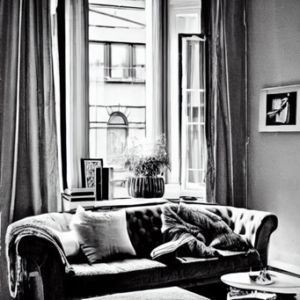Rethinking energy retrofit: putting users in the center, making homes more comfortable, healthier and energy efficient
EPSRC DTP-CASE Scholarship with Historic England
UCL Ethics ID: 20210329_IEDE_PGR_ETH, by UCL REC
PhD Researcher: Athina Petsou [UCL Department of Environment, & UK Centre for Moisture in Buildings (UKCMB)]
Supervisors: Hector Altamirano (UCL, IEDE), Sung Min-Hong (UCL, IEDE)
Historic England Supervisor: Robyn Pender
UCL Data protection officer: Francesco Aletta
Background

The climate crisis is one of the biggest threats to our planet. It demands an urgent societal shift in how we use our buildings and adapt them for the future. In response to the imminent need to drastically reduce energy and CO2 emissions, strategies like energy retrofit of existing buildings is one the most relevant action to be adopted. The UK government has a strong policy targeting energy retrofit to improve the energy performance of homes to achieve the 80% carbon reduction goals by 2050.
However, research has shown that the retrofit measures applied to existing buildings have resulted in undesirable unintended consequences. Incorrect interventions are quite common. Incompatible materials can affect the equilibrium of the building, increasing the risk of surface and interstitial condensation due to excessive humidity levels. Mould growth may develop under high levels of humidity, damaging the building fabric but also affecting the health of occupants; it has been linked to asthma exacerbation and other respiratory infections. Primary focus of retrofit designs has been limiting U-values and increasing building envelope airtightness, while overlooking other critical factors such as thermal comfort, fuel poverty, and occupant needs and heritage values.
Understanding the indoor environment’s health effect on our homes has evolved over the last two decades. A deeper understanding of the causes of those unintended consequences and how they could be avoided is more than necessary in building a well-integrated retrofit approach that protects the building and the health and well-being of occupants. Therefore, how can we change current retrofit practices to minimize those risks? The present PhD project aims to develop an innovative retrofit that considers the complex interactions between environmental, behavioural, psychological, and social factors for an integrated adaptive thermal comfort approach in energy retrofit.
About the research methodology
To address the lack of consideration for adaptive thermal comfort in retrofit design, the project employed a mixed-methods approach. This approach includes pre- and post-retrofit interviews, a thermal comfort survey, and a survey about current retrofit practices.
- Understanding Current Retrofit Practice
A survey was created and distributed online to explore how thermal comfort is currently understood, researched and applied by practitioners during the design of retrofit. The survey aimed to collect data on the main challenges faced by retrofit professionals in the UK, and the guidance and tools they work with, from the perspective of impact on residents. It also aimed to identify the barriers in perceptions and guidance to move from a building fabric-first mindset to a people- centred approach. The survey consisted of 4 parts and 28 multiple- choice and open-ended questions on their experience, challenges and the pre and post retrofit assessments and the tools and regulations used to plan the measures.
- Understanding deeper Occupant Behaviour
The pre-retrofit interviews assessed current user experiences of thermal comfort, identifying any issues that need to be addressed in the retrofit design. The post-retrofit interviews will evaluate the success of the retrofit design in improving thermal comfort, identifying any unintended consequences and opportunities for improvement.
The project developed a thermal comfort survey that measures users’ subjective experiences of thermal comfort and their perception of indoor environmental quality, as well documents the interaction between human and building taken into account the context and personal preferences. The survey is based on established methodologies, such as the adaptive thermal comfort model, and tailored to the specific characteristics of social housing and historic buildings.
- Towards a practical guide
In the final step of the project, a series of workshops are planned for autumn-winter 2024 with retrofit professionals to incorporate the knowledge gained into current retrofit practices. The workshops aim to co-create a practical guide for retrofit practitioners and residents that considers the complex interactions between environmental, behavioural, psychological, and social factors, ultimately improving the effectiveness of retrofit designs.
Taking part in research
You are invited to take part in this project, as a retrofit practitioner or as an occupant, so that the proposed methodology can be informed by the analysis of a sufficiently large dataset. Please contact Athina Petsou if you want to participate.
Contact for further information
Please contact Athina Petsou or Hector Altamirano if you have any queries about this research. You can also contact ukcmb@ucl.ac.uk.
